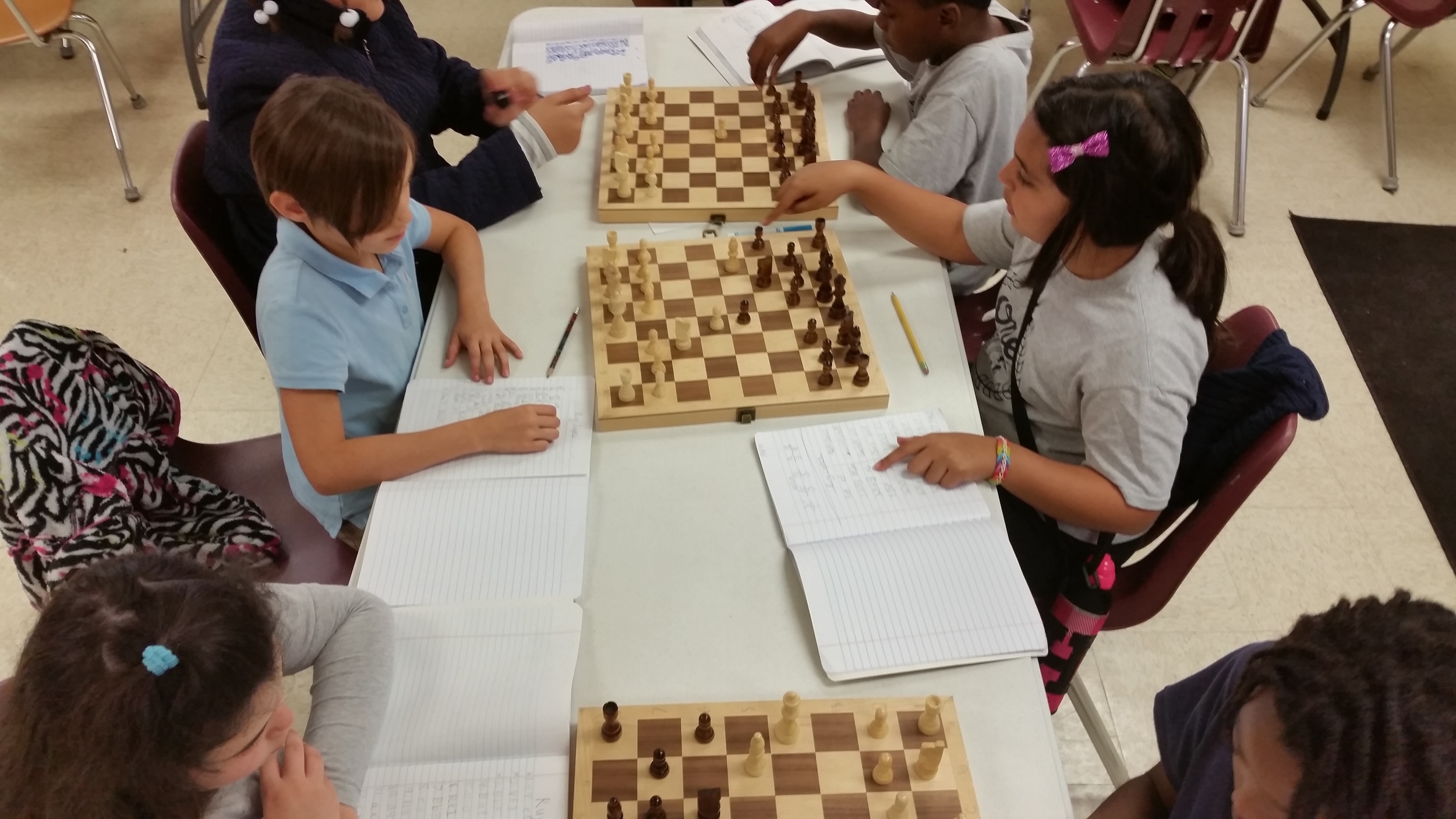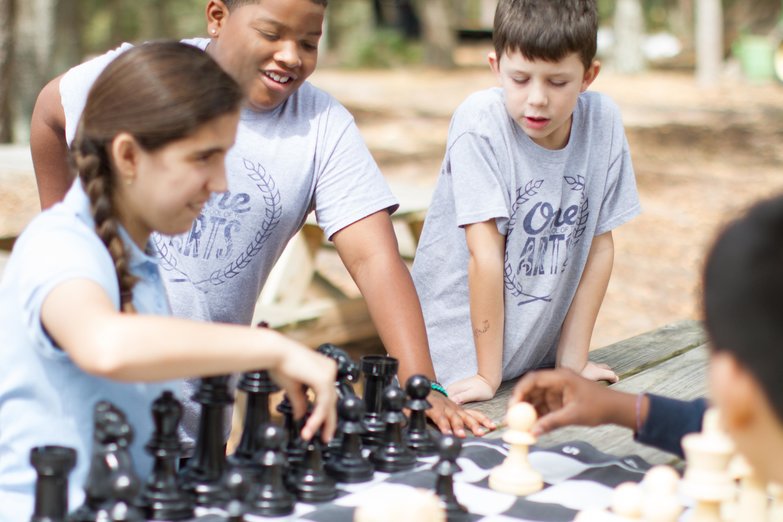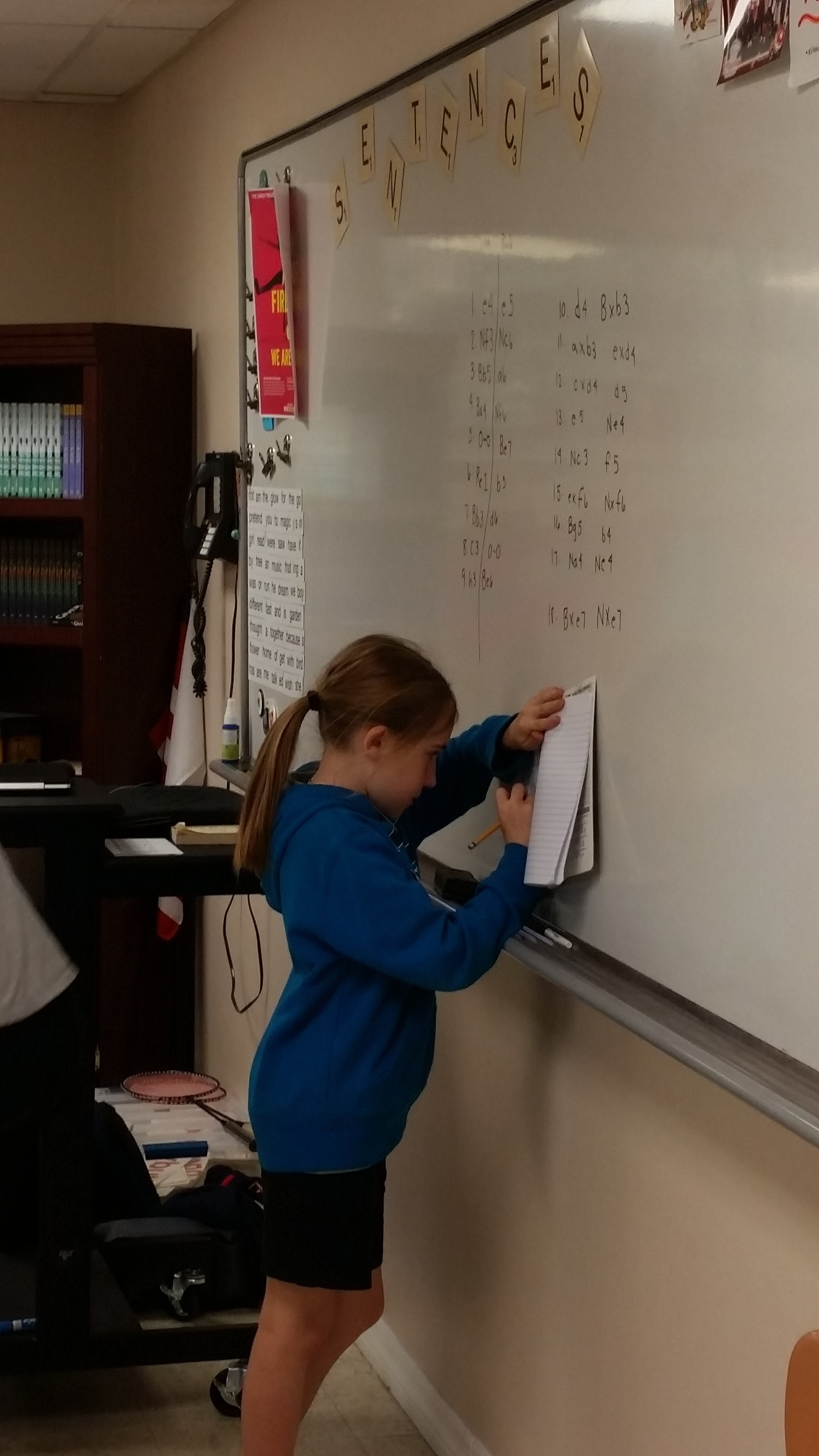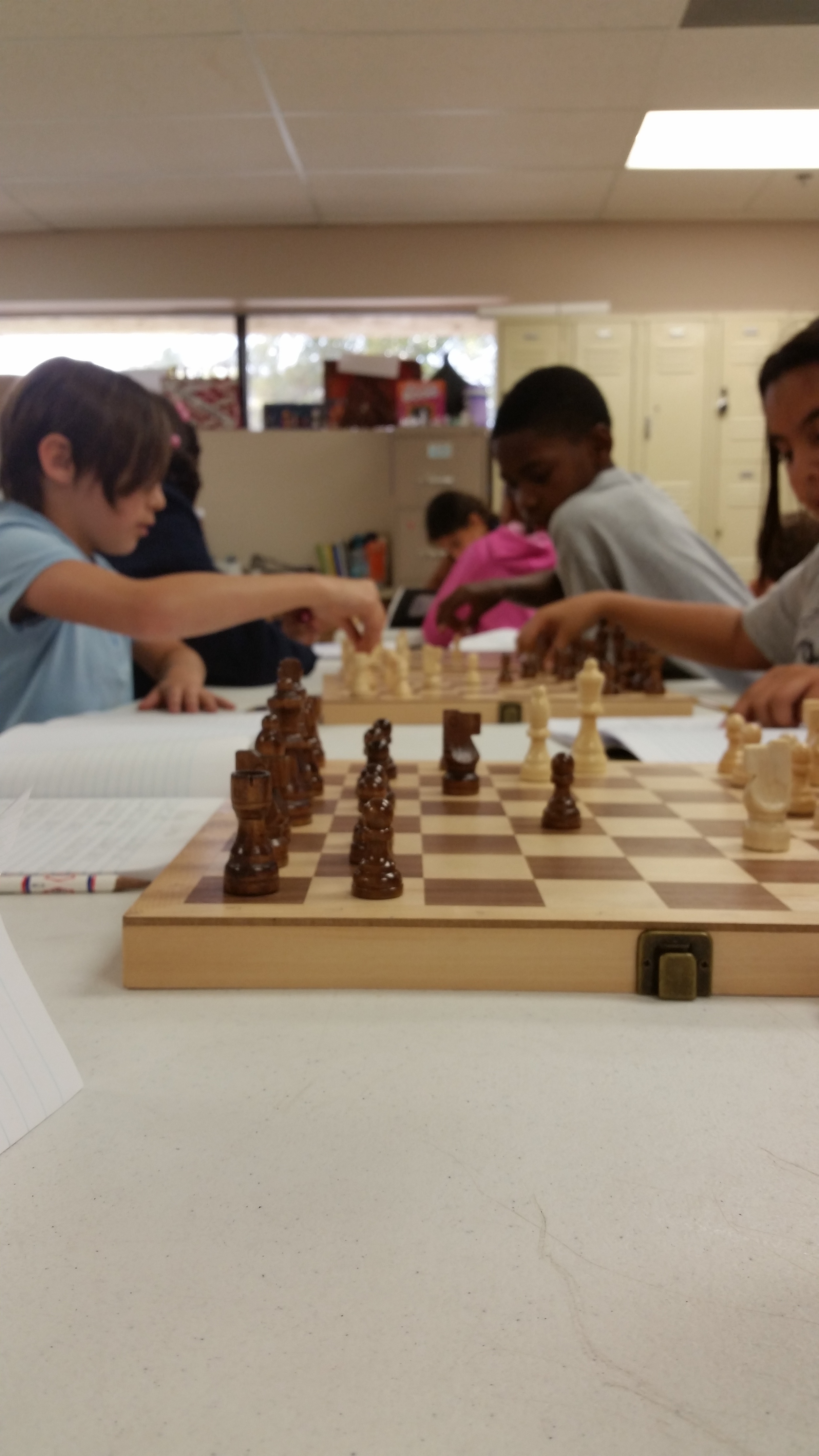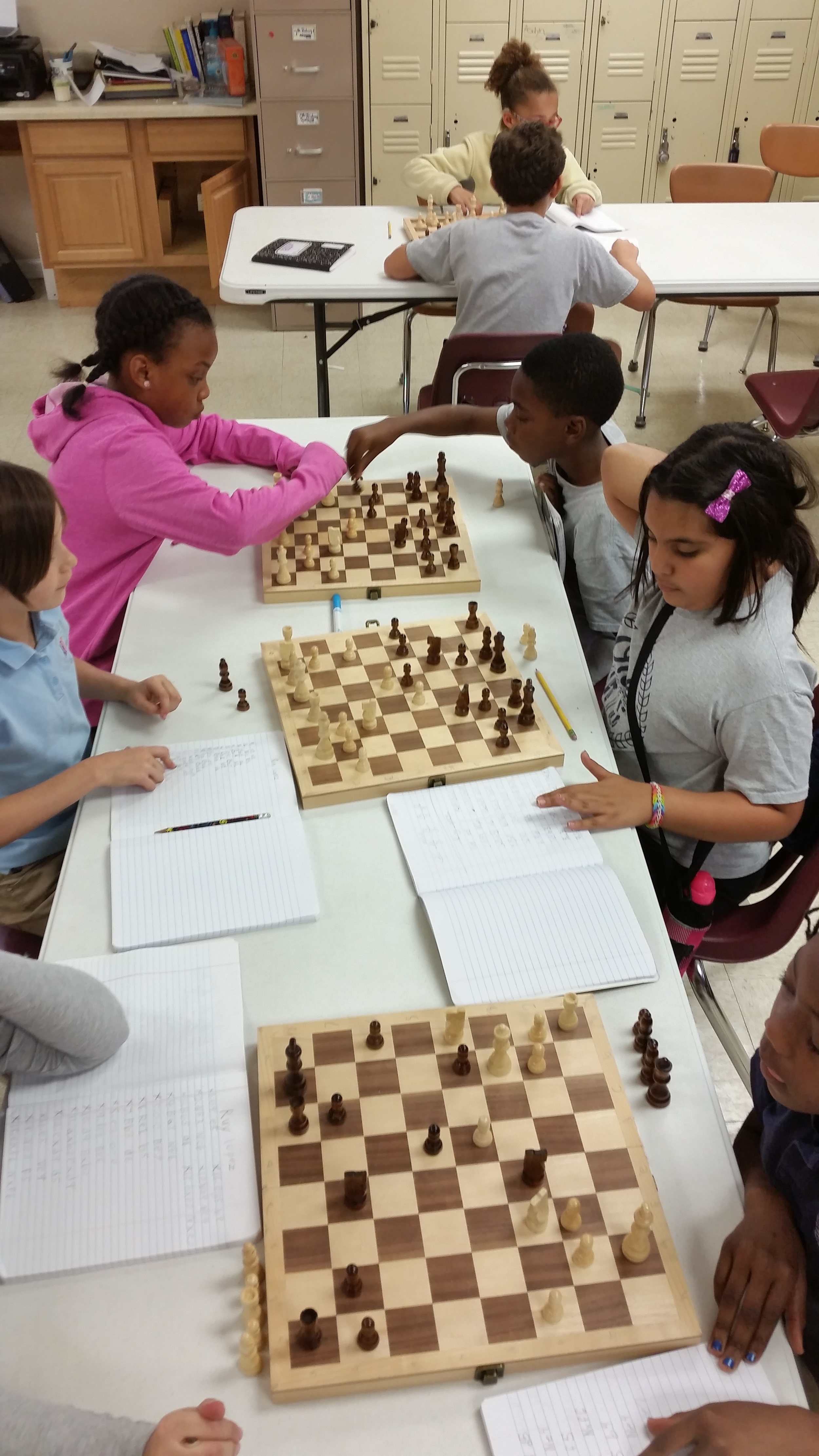More Than Just a Game
In Chess, the old adage, “the early bird catches the worm” has an entirely different spin on it.
If the early bird catches the worm, then the next move should not be to get the worm, but to move craftily so the watchful canine spied in the distance can first capture the sneaky cat lurking in the corner ready to pounce as soon as the worm is seized.
It’s all about thinking two moves ahead. That’s what 4th and 5th graders are learning in their Chess enrichment course with Mrs. Adorno.
Chess benefits young minds in tremendous ways. From creative thinking to strategic development, chess nurtures both hemispheres of the brain while fostering a genuine love for play which is vastly important to an adolescent’s learning environment.
A typical chess class begins with placement: placement of cumbersome items out of the walk path, placement of boards in preparation for tournament level play, (it’s a science) placement of pieces in timed proficiency, and placement of one’s self to become a formidable opponent.
Chess is the great equalizer. Chess etiquette teaches scholars how to respect one another and practice self-control. Each game begins with a civil handshake. When each opponent begins to develop her pieces but makes an error, her opponent responds with a mannerly, “check your move,” rather than the frantic complaint, “he’s cheating!”
And the scholars can definitely check their move because they’ve learned chess annotation— a nomenclature of algebraic equations used by chess masters to keep track of moves.
Scholars in their 4th and 5th year, if challenged, could play an intellectual game of chess even without pieces by mind-mapping their placement on the board using simple tools like their notebooks.
Most days, a walk into room 210 would reveal engaged scholars playing a highly complex game of Chess, either the same five-hundred year old game a prince of Spain played or their own competitive game to declare checkmate.
Sometimes it’s spirited; after all, it’s still a board game to some, but the safe, competitive environment consistently encourages scholars to take risks, navigate around problems or face them directly, build a community of respect, share knowledge, to teach and learn, and to be vigilant.
